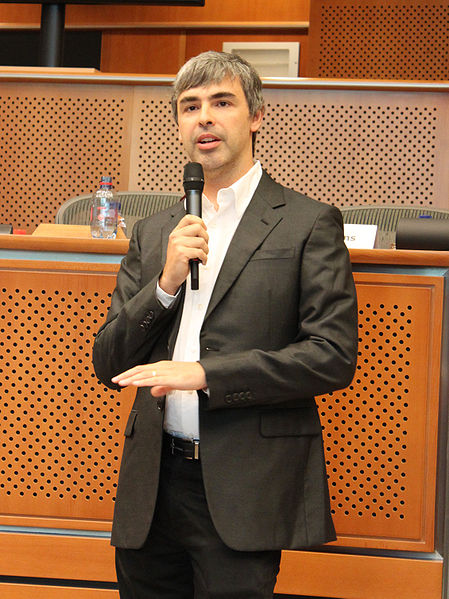01.21.11
Posted in Deception, GNU/Linux, Google, Microsoft at 11:30 am by Dr. Roy Schestowitz
Co-authored with G. Forbes

Summary: Linux projects such as MeeGo continue to be threatened by the influence and corporate culture of Microsoft
EARLIER this week we wrote about some former Microsoft executives relocating to other companies [1, 2]. Once installed, they will often link their new employer back to Microsoft, causing great harm in the process.
Essentially, they are allowing Microsoft to take over these companies without the need to purchase them. Microsoft instead infects them like a virus.
A good example is Huggers, the Microsoft UK executive who left and joined the BBC. Regardless of the government-funded nature of his then-new employer, Huggers allegiance was still with Microsoft [1, 2, 3]. He turned the BBC into the sock-puppet we call the “MSBBC”. Among other things, the MSBBC attempts to portray Microsoft in a positive light as much as possible, regardless of the circumstances and/or actual facts. Now Huggers has been effectively laid off, having caused sufficient damage while reaping many financial benefits from this service mostly paid for by British citizens:
Huggers was on a £330,000 salary and total £407,000 remuneration package in 2009/10.
Amongst his last acts has been planning to cut 25 percent from the BBC’s online budget and staff by 2013, under cost measures announced in the autumn.
Huggers has left the MSBBC in a weaker and Microsoft-dependent state. So naturally Techrights is worried that his next truck stop is Intel, which is involved heavily with the Linux-based MeeGo mobile operating system. Stay alert. As mentioned in the last TechBytes episode, the MSBBC continues its Microsoft bias in coverage and someone else noticed it (MeeGo and Android ARM/x86-based tablets being mostly ignored):
The BBC finally stops ignoring Android, but..
…starts criticising it instead.
Having just witnessed the next instalment of The MSBBC Click’s coverage of CES 2011, once again I’m appalled by their pro-Microsoft bias, which is more obvious now than ever.
The introduction mentions Microsoft first and foremost, with the reporter positioned so the Microsoft stand is clearly visible behind him, giving the false impression that the whole point of CES is as a
showcase for Microsoft products, despite the fact that its presence is little more than a token gesture, as it has nothing new or innovative to show. The reality is that, at CES 2011, Microsoft is completely
irrelevant, and “Click” shouldn’t have even mentioned them at all, much less given Ballmer an advertising slot for Microsoft’s lame and archaic technology.
Then another reporter mentions tablets are dominating the show, and admits nearly all of them are running Android, but then claims this is a problem because “Android won’t really work on tablets until later this year”, conveniently ignoring the swath of popular Android tablets already on the market, and he makes no effort to actually demonstrate any of the new Android tablets at all, despite the fact that he’s inundated by them.
Meanwhile, his tag-team partner upstairs is busy playing the straight man to Ballmer, as he explains why everyone should use Windows 7 on tablets … that aren’t really tablets, because they all have keyboards and big, energy-sucking processors. Or IOW Microsoft “can’t do tablets”, so they’ve decided to redefine them as “all-in-one PCs with detachable keyboards” instead. Again. The reporter makes a comment about the touch screen experience being a bit fiddly on Windows, then lets Ballmer carry on fecklessly showboating.
Overall, everything “Android” was painted in either a negative or questionable light, and everything “Microsoft” was made to seem like a foregone conclusion of success, despite the fact that Android is here and now, and very successful, but Microsoft’s mobile efforts are, and have always been, a miserable flop, and are mostly non-existent vapourware.
To be fair, there were MeeGo devices there too and they are considerably more “open” (or hackable) than Android. MeeGo of course is also a Nokia project, not just an Intel one. It’s a combination of Moblin and Maemo, projects which Nokia seems to have lost a lot of interest in. Not surprisingly, this loss of interest began ever since a Microsoft president was made Nokia’s CEO. Now Murdoch folks are saying that “Nokia’s Miracle [Could] Be Microsoft”:
Should Stephen Elop, Nokia’s new CEO, continue executing the strategy established by his ousted predecessor, strengthening it by improving execution and operating costs? Or should he map out an entirely new strategy, perhaps one based on a third-party operating system. Canaccord Genuity analyst T. Michael Walkley favors the latter, suggesting Nokia make the jump to Android or Windows Phone 7. And interestingly, he feels WP7 is the better option of the two.
Why?
Well, for one thing, Elop is a Microsoft veteran. He seems to have left the company on good terms and presumably still has close ties to it. For another, Microsoft and Nokia are a better cultural fit than Google and Nokia. And finally, the two companies need each other to succeed in the mobile market long term.
Glyn Moody asks, “could Nokia’s *buyer* be Microsoft?” This speculation goes a while back.
It is questionable if Elop will stay committed to Linux-based mobile operating systems, having arrived from Microsoft with words of encouragement from Steve Ballmer. This, along with people like Huggers installed at Intel, has put MeeGo’s future further in jeopardy.
Some of Nokia’s recent strategy does not inspire much confidence. For example, today we found out that:
Nokia ditches plans for X7 smartphone on AT&T
[...]
The Wall Street Journal first reported the news today, but a source close to the situation, who didn’t want to be named, confirmed Nokia had pulled the plug on the launch of the new smartphone on AT&T’s network.
Here is the source of the report. Also today we found some announcements of events, so such pessimism may be premature:
-
This is the place to learn about the new MeeGo open source operating system, view the newest MeeGo-based devices and see what all the buzz is about. You will learn about the benefits of enrolling in the Intel AppUpSM developer program, developing for MeeGo and other available operating systems/run times (Windows C/C++, Adobe AIR, Java, .NET). Hear why you should develop for the Intel AppUpSM center, discover the great monetization opportunities, see live coding demonstrations and talk to Intel experts about your own code.
-
The first annual conference, called MeeGo Italian Day, is a one-day free event focused on the MeeGo open-source linux-based OS and Qt environment.
How about this gadget (see photo)?
Nokia has to do something big if it wants to crack the US smartphone market. We can agree on that, right? And believe us, Nokia wants this — nothing will make the mighty Finns (and the company’s global investors) prouder than to gain some traction in the home of Apple pie and Google desserts. So how will the company do it? With Symbian? Oh, hell no. By introducing another MeToo handset? Nope, with MeeGo on a rockin’ platform like the rumored N9 slider pictured above.
Let’s watch what Nokia does next. Jan from Red Hat speculates that Elop will surround himself by former Microsoft executives, as we saw before in other companies. █
Permalink
 Send this to a friend
Send this to a friend
Posted in Europe, Free/Libre Software, Patents at 10:49 am by Dr. Roy Schestowitz

Siim Kallas with George Bush
Summary: Why the European Commission continues to disappoint freedom proponents following staff changes and perhaps a little entryism
BELATED criticism of the second version of EIF [1, 2, 3, 4, 5] is coming all at once. The Red Hat-run site, opensource.com, has just posted yet another interpretation of the EIFv2, this time not Red Hat’s official response. It starts with:
In December, the long awaited version 2.0 of the European Interoperability Framework (EIF) was released by the European Commission. Version 1.0 had defined “open standard” as royalty-free, a definition of enormous impact on standards policy because it focused on the user perspective rather than the perspective of standards development organizations. Some standards organizations claim that “open standards” refers only to the way the standard was developed – not the terms of availability. In addition, some argue that “fair, reasonable, and non-discriminatory” licensing (FRAND or simply RAND – without the “fair,” as it is known in the U.S.) should be the baseline for openness, not “royalty-free” (RF).
EIF v2 takes the broader perspective on “openness” – that it pertains to the terms of availability, not just the process under which the standard is developed. However, it drops the requirement that “open” = royalty-free. In fact, even “fully open” does not mean royalty-free. The key section reads:
If the openness principle is applied in full…. Intellectual property rights related to the specification are licensed on FRAND terms or on a royalty-free basis in a way that allows implementation in both proprietary and open source software.
This seems to say that RF is no more open than (F)RAND, although RF is in fact an especially open subset of (F)RAND. Unless there are unusual special requirements, anything licensed royalty-free is commonly considered to be available under “free, reasonable, and nondiscriminatory” terms.
To save people the trouble of reading it all, in conclusion states the author:
PCAST is not the government but it is the highest private sector advisory body on science and technology. Its views are taken seriously, especially on something as fundamental as de facto definitions. The European Commission is a government agency and in this case is dealing with procurement and interoperation within government agencies. In the new version of the European Interoperability Framework, it has backtracked, offering guidance that defies common understanding. It muddles the policy framework by introducing new ambiguities and perpetuating debate about fundamental definitions.
considered to be available under “free, reasonable, and nondiscriminatory” terms.
It turns out that we also missed the announcement from APRIL, which said: “EU Commission moving away from interoperability for European public services.”
The European Commission released on December 16th, 2010 its communication relative to its “Interoperability Strategy and Framework for public services”. This document is carrying on an unacceptable reversal on interoperability issues, and ratifies the disappearance of open standards, which were already threatened by the Digital Agenda for Europe.
[...]
April is therefore staying alert in order to ensure that Free Software players will not be excluded from the actions that will be set forth following this communication.
The FFII’s president notes that Europe drops the ball even with its own software:
For technical reasons, the GPF editor has been designed as a Windows application.
Around the same time, the FFII folks saw some worrying material regarding the European Commission. As noted the other day, there is an inexplicable rush to advance the EU patent, which this document from December in Brussels helps elucidate by stating: “On 1 August 2000, the Commission adopted a proposal for a Council Regulation on the Community patent[1]. The Commission proposed the creation of a unitary Community patent which would co-exist with national patents granted by national patent offices of the Member States and European patents granted under the European Patent Convention (EPC) by the European Patent Office (EPO). As a well functioning centralised patent granting system had already been set up in Europe by the EPC in the 1970s, it was envisaged that the Community patent would also be granted by the EPO. Users of the patent system would be free to choose which type of patent protection best suited their needs.
“The Commission proposal aimed at the creation of a Community patent that would be attractive to the users of the patent system in Europe, in particular by proposing simplified and cost-effective translation arrangements. In particular, the Commission proposed that after grant of the Community patent by the EPO in one of the official languages of the EPO (English, French or German) and publication in that language together with a translation of the claims into the other two official languages of the EPO, the Community patent would have taken effect in the entire Union.”
It has been demonstrated before that the European Commission was changed from the inside (staff changes). It no longer seems as Free/open source software-friendly as it used to be, so its response to CPTN does not surprise us. █
Permalink
 Send this to a friend
Send this to a friend
Posted in America, Asia, Europe, Patents at 10:20 am by Dr. Roy Schestowitz

Summary: The West loses its advantage to the East by increasing grounds for litigation without much cross-continent/country leverage
A little while ago we wrote about the impact of excessive patenting, especially when it comes to the rising power of China (post available in Spanish). China is not going to sit back and let itself be abused by the West. In fact, based on this report, “China Patent Grants up 40%, Filings Up 25% in 2010″:
Not long after the announcement came out that the USPTO granted a record number of patents in 2010, China’s SIPO officially announced today that the number of patents granted in China in 2010 was 40 percent higher than in 2009, receiving over 1.2 million patent applications and approving 814,825 requests among them last year. The application number was over 25 percent more than that in 2009.
Over in the US, a “Patent Troll Takes Twitter To Court For Creating Virtual Community of Celebs” and China may be laughing at this self-nuking act that only shuts down innovation rather than promote any. It can lead companies to expansion in China where it’s safer for a corporation (less litigation, less regulation).
You read that right – someone is apparently suing Twitter because it lets celebs interact online. The popular micro-blogging service partly owes its popularity to celebrities like P Diddy, Ellen Degeneres, 50 Cent, Ashton Kutcher and Demi Moore who command millions of Twitter followers. It’s exactly this aspect of the service that’s now under fire from little-known VS Technologies, LLC that doesn’t even have a website. This company apparently holds rights to a 2002 patent entitled “Method and system for creating an interactive virtual community of famous people” and they’re seeking an unspecified amount of damages to be paid that “cannot be less than would constitute a reasonable royalty for the use of the patented technology, together with interest and costs as fixed by this Court,” as they’ve put it.
In Europe too we have been seeing some discouraging news recently (Court of Justice ruling on Czech GUIs) and Falk Metzler, a lawyer, writes about it in his blog. What he says in the first part is a bit of an introduction:
Even though up to now this blog predominantly reported on patent issues and IP politics, it is nevertheless intended to cover other types of software-related intellectual property as well.
I thus feel that I have to mention at least briefly the recent decision of the European Court of Justice in case C-393/09 (BSA vs. Ministry of Culture of the CR), which is dealing with copyright protection of graphical user interfaces (GUI).
How are people supposed to code these days? In the past, all one had to do was ensure that his/her code was written by oneself. These days, people are expected to read and understand hundreds of thousands of patents and now be familiar with loads of GUI designs/layouts that are ‘protected’ by copyright? Metzler shows the KDE4 desktop in his blog posts. Is he trying imply something? What type of future does the West offer to developers if restrictions that they are not interested in are put in place to impede them? I write this as a concerned developer myself. Programming jobs are being eliminated in order to give way to lawyers and monopolies they sometimes represent. █
Permalink
 Send this to a friend
Send this to a friend
Posted in Mono, Quote at 9:44 am by Dr. Roy Schestowitz
…So spread the word about Monofree and Mononono. Impede entryism by Mono and Moonlight.

Permalink
 Send this to a friend
Send this to a friend
Posted in Free/Libre Software, Google, Patents at 9:40 am by Dr. Roy Schestowitz

Summary: Google’s new CEO Larry Page would be wise to protect his company from attacks by eliminating the real source of this problem
THE current debate about Chrome and WebM became a broader debate about proprietary/patents-encumbered codecs versus free ones. We covered this a couple of days ago because Microsoft boosters are lying.
One of our readers noticed this MPEG LA announcement which everyone appears to have overlooked. MPEG LA is calling for even more patents.
MPEG LA invites any party that believes it has patents that are essential to the MVC Standard to submit them by February 18, 2011 for evaluation of their essentiality by MPEG LA’s patent evaluators in order to participate in the creation of, and determine licensing terms for, a joint MVC patent license.
Steve Jobs, who has just vanished again, warned that his mates at MPEG LA (run by a patent troll) will fight against free codecs using patents. This one person seems to agree if not corroborate too. The opening says:
People say I am a troll, a hater of Open Source, an H.264 fan boy, a dozen other things, but I am just a realist. (And was on the SMPTE VC1 Ratification committee).
The title by the way is “Google Will Have To Pony Up To Mpeg LA: Why WebM Is NOT Going To Be Royalty Free”.
As one person put it in Twitter, it is better to have a free format/codec which may later come under dispute for Google to resolve than to go straight into the codec Hell offered by the MPEG LA cartel.
“Help those who actively support abolishing software patents.”Google would be wise to lobby for shutdown of software patents, but as we noted before, Google’s patents database for the US shows that it is part of the problem (see this ludicrous patent). Google says: “Because of our long-term interests in open source, we may not have adequate patent protection for certain innovations” [via Benjamin Henrion].
Fine, Google. Then get rid of patents already. Help those who actively support abolishing software patents. The wrath of MPEG LA is only relevant to the United Stated and Japan, where software patents are formally acknowledged as valid. Changing this is not an impossible task. SJVN said last night that “[w]hen [he] spoke with Chris DiBona, Google’s open-source program manager, a few years back when Google was big but not yet Google, DiBona told [him], that Page was “passionate about open source.” DiBona added, that Google also supported its engineers working on “open-source and Linux,” and that “many of them use part of their time to work on open-source projects.”” Unlike Page, Eric Schmidt defended intellectual property (“fundamental to how we operate”).
Someone should pressure Mr. Page to start rebelling against the US patent system, which also harms Android. Software patents are neither Google’s friend nor society’s friend. Do no evil, Google, and help us get rid of those evil software patents. █
Permalink
 Send this to a friend
Send this to a friend
Posted in Australia, Novell, Open XML, OpenDocument, OpenOffice at 9:07 am by Dr. Roy Schestowitz

Summary: Microsoft’s OOXML is proving to be more of a farce now that people in Australia respond to absurd suggestions; Novell influence in LibreOffice is poisonous (promotes OOXML); some businesses may choose hosted spreadsheets that can render the formats debate less relevant
SOME days ago we wrote about Australia making a fatal mistake (post available in Spanish too) by assuming that Microsoft’s proprietary formats will help ensure compatibility. The stupidity surrounding this assertion has been noted just about everywhere by now. Rob Weir from IBM wrote:
Australia has rejected the ISO version of OOXML and gone with the Ecma version that ISO rejected. Is everything upside down there?
Later he added:
@homembit It is a slap in the face for the OOXML efforts in SC34. With PDF they specified the ISO version, for example.
Microsoft’s 'fox' Alex Brown already spins it in Twitter and in his blog. How appalling. And other OOXML drones like Jesper Lund Stocholm are there as well, as expected. But anyway, the subject has been covered extensively by now (if not here then elsewhere) and we are a lot more concerned about Novell’s influence inside LibreOffice. It continues to cause problems, based on this LWN report which has just been made publicly available. It says:
Just before the end of the year, Larry Gusaas called on the LibreOffice community to refuse to support the writing of OOXML files. Standard OpenOffice.org is able to read such files, but will not write them; that is, according to Larry, how things should be. But LibreOffice is based on the Go-oo project, which is the version of OpenOffice.org which has actually been shipped by most Linux distributions. This version does have the ability to write OOXML files; thus, LibreOffice does as well.
Quite a few people supported Larry’s desire for read-only OOXML support in LibreOffice; one could easily peruse the thread and come to the conclusion that the LibreOffice community is overwhelming opposed to the idea of writing in that format. Even so, a number of LibreOffice developers have made it clear (repeatedly) that they have no intention of removing the ability to write OOXML files. There is, thus, no need to worry that we might have to go on using Go-oo after all.
We wrote about this before [1, 2]. Just a day or so ago it was a Novell employee who announced the latest release/build of LibreOffice, so there is room for concern. Novell was paid by Microsoft to support OOXML and LibreOffice should stay true to its promise of avoiding OOXML.
As one last bit of news, consider as food for thought the fact that more companies choose collaboration with SaaS, including wikis for example. Google Apps is one example of it, but there are more. The IDG article “Why some companies are ditching their spreadsheets” sheds some more light about what may become a trend, especially now that spreadsheets become ever more massive and sometimes require compute clusters to work with.
Cohen’s frustration with spreadsheets is not unique. As decision-making becomes more collaborative and workforces grow more distributed and global, the days of compiling a spreadsheet, mailing or e-mailing it to colleagues, then manually inputting updates and re-sending it seem antiquated.
A transition to the back end (server) for large operations on massive databases may lead to further distancing from Microsoft Office/OOXML. Maybe it is time to rethink the relevance of interchange formats that mostly apply to desktop computing. █
Permalink
 Send this to a friend
Send this to a friend
Posted in GNU/Linux, Google, Microsoft, Patents at 8:38 am by Dr. Roy Schestowitz

Summary: Microsoft mobbyists and people whom the company feeds material for attacks on the competition are especially afraid of OIN and Android
WE OFTEN state that objects and entities which Microsoft proponents target the most are those which worry Microsoft the most. This general rule usually proves to be applicable in a wide range of debates, including the recent one about codecs (more on that in a later post).
For those who have not been paying attention, Microsoft has been patenting a lot recently. A lot. New products hardly come from the company, but staff is very busy filling out paperwork and coming up with some of the most ludicrous ideas (if they can even be called that) and try to gain a monopoly on those, in order to scare competitors and have them pass ‘protection money’ to Microsoft. This is not business, it’s racketeering [1, 2, 3, 4, 5, 6, 7].
One resistor which piqued Microsoft’s curiosity is the OIN, where many companies pool their patents strictly for defensive purposes. Some make the claim that the OIN would render the patent system obsolete, but this is truly a stretch.
Techrights continues to stress that Microsoft has begun playing a reactionary game (or a reaction to OIN’s reaction) by setting up all sorts of entities, including CPTN [1, 2, 3, 4, 5], which puts a large lump of OIN’s patents in Microsoft’s own pool. Needless to say, it’s a cold war; it is unlikely that a war will erupt as it’s more like a bunch of lawyers flexing their muscles papers and seeing who can be extorted in order to “maximise shareholders’ value” or whatever.
“Microsoft mobbyists even brag about the number of lawsuits against Android.”There is no need to hide the fact that Google uses Linux to win the mobile/smartphones war. Android has begun moving up the food chain (greater scale), so at stake here we have not just phones anymore. Microsoft understands this, which is why Microsoft and its shells or allies are suing Google — a trend we have been tracking and showing for many months. Microsoft mobbyists even brag about the number of lawsuits against Android. This mirrors exactly what Steve Ballmer et al. tell journalists. Google is a member of the OIN, which is still trying to find new ways to ‘hack’ the patent system and defend Linux from it.
There are all sorts of theories about CPTN and its purpose. The mobbyists try to spin it and mass-mailing journalists is one of their tools. As Gordon puts it in relation to an observation made here yesterday, “apparently in [Microsoft Florian's] world Microsoft are innovators, so there are other worlds than this it seems… lol, just noticed the “he’s been writing it since Jan 2010″ so a whopping ONE YEAR adventure then…”
The presence of Microsoft Florian in The Guardian also came under fire by Satipera, who wrote: “The Guardian is repeating Florian Mueller’s paid for propaganda word for word. #swpats #Guardiantechfail”
One line of propaganda is that Android is “risky” because of patents. Another line of propaganda from this mobbyist is that despite complaints from both Free software and open source entities, there is nothing wrong with the CPTN patents cartel (the mobbyist uses the European Commission’s response, which was mentioned initially by him, but later by the press and Steven J. Vaughan-Nichols [1, 2]). When there is some insider material about Microsoft (especially if it’s favourable to Microsoft), the mobbyist usually gets it first and leaked/exclusive documents from the past show us that Microsoft tends to feed those. How about those TurboHercules letters (Microsoft Florian got the “scoop”) which smeared IBM before it turned out that Microsoft owned part of TurboHercules? Someone is probably being briefed for lobbying purposes. Groklaw responds to it all as follows:
It also means that the EU Commission’s answer to a question on January 17 that “on the basis of the information currently available at this stage” it seemed unlikely the deal “requires a notification to the Commission under the Merger Regulation” or that “the mere acquisition of the patents in question by CPTN Holdings would lead to an infringement of EU competition rules” came prior to this renewed filing, which was filed not with the EU Commission anyhow but with the German Federal Cartel Office. That is who will decide the matter there, and the US DOJ will consider the matter in the US. No one has filed a complaint with the EU Commission that I know of, not that it couldn’t happen. There is a lot of subtle FUD in the air from the usual suspects, if I might say so.
Hopefully other companies and entities will express their concerns as well.
For those who insist that Microsoft Florian still deserves the benefit of some doubt, bear in mind that this week too the mobbyist links to Maureen O’Gara repeatedly (vice versa too) and still chats with Rob Enderle. These are some of the vilest, most dishonest and ethically-corrupt people who have attacked Linux for a long time. Microsoft Florian attaches himself to these people, amongst others of their type. He links to Mary Jo Foley, who links back to him. It’s like Club Microsoft. As we showed before, the mobbyist has been defending CPTN and smearing OIN; he talks to pro-Microsoft reporters and anti-Free software Internet trolls. People can draw their own conclusions and also realise that the attacks on OIN and Android do confirm that they are major threats to Microsoft. █
Permalink
 Send this to a friend
Send this to a friend
Posted in Australia, Microsoft, Open XML, OpenDocument, Standard at 7:37 am by Dr. Roy Schestowitz

(ODF | PDF | English/original)
Resumen: Australia decreta el propietario Microsoft Office Open XML como formato de documentos officiales, los reportes informan.
El Gobierno de Australia ha reforzado el monopolio de Microsoft al decidir que los ciudadanos deben usar productos caros, propietarios, y con errores de Microsoft para comunicarse con los servidores públicos. Aquí el crítico informe de Australia [http://www.itnews.com.au/News/245276,australia-mandates-microsofts-open-office-xml.aspx](un ejemplo de buen periodismo):
La particular OOXML norma fue rechazada por la Organización Internacional de Normalización (ISO) por que estaba llena de dependencias de la plataforma Windows, de acuerdo a sus oponentes.
La Alianza del Formato de Documentos Abierto ODF, respaldado por IBM y Google, ha advertido sobre la adopción del estándar ECMA-376 por los gobiernos.
“El uso de ECMA-376, esencialmente ENCADENA al adoptante a Microsoft Office”, advirtió el grupo de presión en octubre del año pasado en un documento titulado “¿Qué necesitan los Gobiernos Saber?”
Esa norma, señaló, “contiene dependencias de la plataforma Windows” que Microsoft se vio obligado a “eliminar” en el marco del proceso de la ISO con el fin de conseguir su aprobación como norma ISO-29500 – una norma que hasta la fecha el Microsoft Office 2010 ha incumplido.
Para citar el resumen de Slashdot[http://it.slashdot.org/article.pl?sid=11/01/19/0059209]:
“El Gobierno de Australia ha lanzado un entorno común de operación política de escritorio – Entre los controles de “seguridad”, destinadas a “reducir” el potencial de fugas de datos del Gobierno – los mandatos de la ECMA-376 versión de Microsoft Office Open XML (OOXML) estándar y suites de productividad que pueden “leer y escribir” el formato docx., efectivamente esclavizando a los servidores públicos del país al uso de Microsoft Office. La política [PDF] Cung parece limitar los sistemas operativos de escritorio a las ofertas de grandes, comerciales disponibles en el mercado a expensas de las pequeñas distribuciones”.
Para repetir algunas historias acerca de Australia y OOXML (hay más):
* Si Usted Vive en Australia, la Justicia Necesita su Ayuda [http://techrights.org/2008/02/20/australia-geneva-brm-ooxml/]
* OOXML: Exclusión de Apilamiento, y Snubbing en los EE.UU., Australia y Nueva Zelanda [http://techrights.org/2008/03/10/moox-stacking-exclusion-snubbing/]
* Australia Potencialmente Dañada por Microsoft (OOXML “Sí” Voto) [http://techrights.org/2008/02/15/rick-jelliffe-for-aussie/]
Vamos a recordar a la gente en Australia que Microsoft pagó a ejercer presión para OOXML y a escondidas editar Wikipedia [1[http://techrights.org/2008/03/22/ooxml-spec-mess-custom/], 2[http://techrights.org/2008/02/26/standards-australia-rick-jelliffe/], 3[http://techrights.org/2010/04/06/ibm-on-withdrawing-microsofts-ooxml/]]. █
____
* Lock-in – Tiene no directa traduccion al Español. -Consideremoslo un Anglicanismo del finales del siglo XX y principios del XXI- Sonaría muy tonto e incomprensible algo como “candado”, pero mucho mas claro como “PRISION”.
-Esta palabra viene a significar literalmente la forzosa sumisión a formatos electrónicos que hacen muy difícil escaparse de ellos.
-Por ejemplo una persona u organización que ha usado Microsoft Office durante mucho tiempo. Cuando sale una nueva versión es FORZADO a PAGA
R por ella por que Microsoft SIEMPRE ha creado y creará incompatibilidades artificiales, y echarle la culpa a la competencia. -Lease los Co
mes vs Microsoft para ver como esto ha sido, es, y será una de sus tácticas para crear dependencia en sus productos. Por ello viene a ser un instrumento de dominación. El Colonialismo Digital, del que debemos romper cadenas AHORA para bienestar de las nuestro y las fúturas generaciones.
Many thanks to Eduardo Landaveri of the Spanish portal of Techrights.
Permalink
 Send this to a friend
Send this to a friend
« Previous Page — « Previous entries « Previous Page · Next Page » Next entries » — Next Page »
Further Recent Posts
- 2017: Latest Year That the Unitary Patent (UPC) is Still Stuck in a Limbo
The issues associated with the UPC, especially in light of ongoing negotiations of Britain's exit from the EU, remain too big a barrier to any implementation this year (and probably future years too)
- Links 7/1/2017: Linux 4.9.1, Wine 2.0 RC4
Links for the day
- India Keeps Rejecting Software Patents in Spite of Pressure From Large Foreign Multinationals
India's resilience in the face of incredible pressure to allow software patents is essential for the success of India's growing software industry and more effort is needed to thwart corporate colonisation through patents in India itself
- Links 6/1/2017: Irssi 1.0.0, KaOS 2017.01 Released
Links for the day
- Watchtroll a Fake News Site in Lobbying Mode and Attack Mode Against Those Who Don't Agree (Even PTAB and Judges)
A look at some of the latest spin and the latest shaming courtesy of the patent microcosm, which behaves so poorly that one has to wonder if its objective is to alienate everyone
- The Productivity Commission Warns Against Patent Maximalism, Which is Where China (SIPO) is Heading Along With EPO
In defiance of common sense and everything that public officials or academics keep saying (European, Australian, American), China's SIPO and Europe's EPO want us to believe that when it comes to patents it's "the more, the merrier"
- Technical Failure of the European Patent Office (EPO) a Growing Cause for Concern
The problem associated with Battistelli's strategy of increasing so-called 'production' by granting in haste everything on the shelf is quickly being grasped by patent professionals (outside EPO), not just patent examiners (inside EPO)
- Links 5/1/2017: Inkscape 0.92, GNU Sed 4.3
Links for the day
- Links 4/1/2017: Cutelyst 1.2.0 and Lumina 1.2 Desktop Released
Links for the day
- Financial Giants Will Attempt to Dominate or Control Bitcoin, Blockchain and Other Disruptive Free Software Using Software Patents
Free/Open Source software in the currency and trading world promised to emancipate us from the yoke of banking conglomerates, but a gold rush for software patents threatens to jeopardise any meaningful change or progress
- New Article From Heise Explains Erosion of Patent Quality at the European Patent Office (EPO)
To nobody's surprise, the past half a decade saw accelerating demise in quality of European Patents (EPs) and it is the fault of Battistelli's notorious policies
- Insensitivity at the EPO’s Management – Part V: Suspension of Salary and Unfair Trials
One of the lesser-publicised cases of EPO witch-hunting, wherein a member of staff is denied a salary "without any notification"
- Links 3/1/2017: Microsoft Imposing TPM2 on Linux, ASUS Bringing Out Android Phones
Links for the day
- Links 2/1/2017: Neptune 4.5.3 Release, Netrunner Desktop 17.01 Released
Links for the day
- Teaser: Corruption Indictments Brought Against Vice-President of the European Patent Office (EPO)
New trouble for Željko Topić in Strasbourg, making it yet another EPO Vice-President who is on shaky grounds and paving the way to managerial collapse/avalanche at the EPO
- 365 Days Later, German Justice Minister Heiko Maas Remains Silent and Thus Complicit in EPO Abuses on German Soil
The utter lack of participation, involvement or even intervention by German authorities serve to confirm that the government of Germany is very much complicit in the EPO's abuses, by refusing to do anything to stop them
- Battistelli's Idea of 'Independent' 'External' 'Social' 'Study' is Something to BUY From Notorious Firm PwC
The sham which is the so-called 'social' 'study' as explained by the Central Staff Committee last year, well before the results came out
- Europe Should Listen to SMEs Regarding the UPC, as Battistelli, Team UPC and the Select Committee Lie About It
Another example of UPC promotion from within the EPO (a committee dedicated to UPC promotion), in spite of everything we know about opposition to the UPC from small businesses (not the imaginary ones which Team UPC claims to speak 'on behalf' of)
- Video: French State Secretary for Digital Economy Speaks Out Against Benoît Battistelli at Battistelli's PR Event
Uploaded by SUEPO earlier today was the above video, which shows how last year's party (actually 2015) was spoiled for Battistelli by the French State Secretary for Digital Economy, Axelle Lemaire, echoing the French government's concern about union busting etc. at the EPO (only to be rudely censored by Battistelli's 'media partner')
- When EPO Vice-President, Who Will Resign Soon, Made a Mockery of the EPO
Leaked letter from Willy Minnoye/management to the people who are supposed to oversee EPO management
- No Separation of Powers or Justice at the EPO: Reign of Terror by Battistelli Explained in Letter to the Administrative Council
In violation of international labour laws, Team Battistelli marches on and engages in a union-busting race against the clock, relying on immunity to keep this gravy train rolling before an inevitable crash
- FFPE-EPO is a Zombie (if Not Dead) Yellow Union Whose Only de Facto Purpose Has Been Attacking the EPO's Staff Union
A new year's reminder that the EPO has only one legitimate union, the Staff Union of the EPO (SUEPO), whereas FFPE-EPO serves virtually no purpose other than to attack SUEPO, more so after signing a deal with the devil (Battistelli)
- EPO Select Committee is Wrong About the Unitary Patent (UPC)
The UPC is neither desirable nor practical, especially now that the EPO lowers patent quality; but does the Select Committee understand that?
- Links 1/1/2017: KDE Plasma 5.9 Coming, PelicanHPC 4.1
Links for the day
- 2016: The Year EPO Staff Went on Strike, Possibly “Biggest Ever Strike in the History of the EPO.”
A look back at a key event inside the EPO, which marked somewhat of a breaking point for Team Battistelli
- Open EPO Letter Bemoans Battistelli's Antisocial Autocracy Disguised/Camouflaged Under the Misleading Term “Social Democracy”
Orwellian misuse of terms by the EPO, which keeps using the term "social democracy" whilst actually pushing further and further towards a totalitarian regime led by 'King' Battistelli
- EPO's Central Staff Committee Complains About Battistelli's Bodyguards Fetish and Corruption of the Media
Even the EPO's Central Staff Committee (not SUEPO) understands that Battistelli brings waste and disgrace to the Office
- Translation of French Texts About Battistelli and His Awful Perception of Omnipotence
The paradigm of totalitarian control, inability to admit mistakes and tendency to lie all the time is backfiring on the EPO rather than making it stronger
- 2016 in Review and Plans for 2017
A look back and a quick look at the road ahead, as 2016 comes to an end
- Links 31/12/2016: Firefox 52 Improves Privacy, Tizen Comes to Middle East
Links for the day

























 Content is available under CC-BY-SA
Content is available under CC-BY-SA